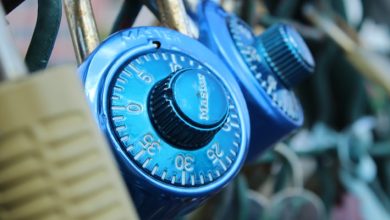How to Avoid Losing Access to Your Private Keys

- How private keys work and why they are crucial for securing your digital assets
- Best practices for storing and backing up your private keys securely
- The dangers of losing access to your private keys and how it can lead to permanent loss of funds
- Why you should never share your private keys with anyone, no matter the circumstance
- Steps to take if you suspect your private keys may have been compromised or lost
- Tools and technologies that can help you securely manage and protect your private keys
How private keys work and why they are crucial for securing your digital assets
Private keys are essential components in the world of digital assets. These keys are essentially long strings of alphanumeric characters that are used to authenticate transactions and provide access to your digital holdings. When you create a digital wallet, you are issued a pair of keys – a public key, which is shared with others to receive funds, and a private key, which must be kept secret at all times.
The private key is what allows you to access and control your digital assets. It is crucial to keep this key secure and confidential to prevent unauthorized access to your funds. If someone gains access to your private key, they can essentially take control of your digital assets and transfer them to their own wallet.
To ensure the security of your digital assets, it is important to store your private keys in a secure location, such as a hardware wallet or a secure digital vault. It is also advisable to create backups of your private keys in case you lose access to them. By taking these precautions, you can protect your digital assets from theft or loss.
In conclusion, private keys play a vital role in securing your digital assets. By understanding how they work and taking steps to keep them safe, you can prevent unauthorized access to your funds and avoid losing access to your private keys. Make sure to prioritize the security of your private keys to safeguard your digital assets effectively.
Best practices for storing and backing up your private keys securely
When it comes to storing and backing up your private keys securely, there are a few best practices you should follow to ensure that you don’t lose access to your valuable assets. One of the most important things you can do is to use a hardware wallet to store your private keys. Hardware wallets are physical devices that store your keys offline, making them much more secure than storing them on your computer or in the cloud.
Another best practice is to create multiple backups of your private keys and store them in different secure locations. This way, if one backup is lost or stolen, you still have access to your keys through another backup. It’s also a good idea to encrypt your backups to add an extra layer of security.
When creating backups of your private keys, make sure to use secure and reliable storage devices, such as USB drives or external hard drives. Avoid using easily accessible or unsecure storage options, such as email or cloud storage services, as these can be vulnerable to hacking.
Regularly update your backups to ensure that they include any new keys or changes to your existing keys. This will help you avoid any potential loss of access due to outdated backups. Additionally, consider using a password manager to securely store and manage your passwords, including those for your private keys.
By following these best practices for storing and backing up your private keys securely, you can help prevent the loss of access to your valuable assets and ensure that you are always able to access and manage your keys when needed.
The dangers of losing access to your private keys and how it can lead to permanent loss of funds
One of the most critical aspects of managing your cryptocurrency is safeguarding your private keys. If you lose access to your private keys, you risk losing access to your funds permanently. This can happen for a variety of reasons, such as hardware failure, forgetting your password, or simply misplacing your keys. Without your private keys, you won’t be able to access your funds, and there is often no way to recover them.
Losing access to your private keys can be devastating, especially if you have a significant amount of funds stored in your wallet. Once you lose your private keys, there is no way to recover them, and your funds will be locked away forever. This is why it is crucial to take the necessary precautions to ensure that you never lose access to your private keys.
One way to prevent the loss of your private keys is to store them securely in multiple locations. This way, if one copy of your private keys is lost or damaged, you will still have access to your funds. Additionally, you should regularly back up your private keys and store them in a secure location, such as a safe deposit box or a secure digital storage device.
Why you should never share your private keys with anyone, no matter the circumstance
It is crucial to understand the importance of keeping your private keys secure and never sharing them with anyone, under any circumstances. Your private keys are essentially the keys to your digital assets, such as cryptocurrencies or sensitive information. Sharing your private keys can lead to irreversible consequences and potential loss of access to your assets.
When you share your private keys with someone else, you are essentially giving them full control and ownership of your digital assets. This means that they can transfer or withdraw your assets without your consent, leaving you powerless and unable to recover them. Additionally, sharing your private keys increases the risk of theft, fraud, and hacking, as malicious actors can easily gain access to your assets.
It is important to remember that private keys should be kept private for a reason – to protect your assets and ensure that only you have control over them. No legitimate individual or organization will ever ask you to share your private keys, so be wary of any such requests and never disclose your private keys to anyone, no matter how trustworthy they may seem.
By keeping your private keys secure and refraining from sharing them with anyone, you can protect your digital assets and minimize the risk of unauthorized access or loss. Remember, your private keys are your responsibility, and it is up to you to safeguard them to ensure the security of your assets.
Steps to take if you suspect your private keys may have been compromised or lost
If you suspect that your private keys may have been compromised or lost, it is crucial to act quickly to protect your assets. Follow these steps to safeguard your cryptocurrencies and prevent unauthorized access to your accounts.
First, disconnect your device from the internet to prevent any further unauthorized access to your private keys. Then, contact the support team of the wallet or exchange where your private keys are stored. They may be able to help you recover your keys or provide guidance on next steps.
Next, consider generating new private keys and transferring your funds to a new wallet. This will ensure that your assets are secure and not at risk of being accessed by unauthorized parties. Remember to back up your new private keys in a secure location to prevent future loss.
If you are unable to recover your private keys or transfer your funds to a new wallet, consider reaching out to a professional for assistance. They may be able to help you recover your lost keys or provide advice on how to proceed.
Overall, taking swift action is key when you suspect that your private keys may have been compromised or lost. By following these steps, you can protect your assets and prevent any further unauthorized access to your cryptocurrencies.
Tools and technologies that can help you securely manage and protect your private keys
When it comes to managing and protecting your private keys, there are several tools and technologies available to help you keep them secure. One of the most popular options is a hardware wallet, which is a physical device that stores your keys offline and away from potential hackers. This provides an extra layer of security compared to storing your keys on a computer or mobile device.
Another tool that can help you securely manage your private keys is a password manager. Password managers can generate strong, unique passwords for each of your accounts, including those associated with your private keys. This reduces the risk of using weak or reused passwords that could be easily compromised.
Additionally, multi-signature wallets are a useful technology for protecting your private keys. With a multi-signature wallet, multiple private keys are required to authorize a transaction, making it more difficult for a single point of failure to compromise your assets. This can be especially helpful for businesses or individuals managing large sums of cryptocurrency.



